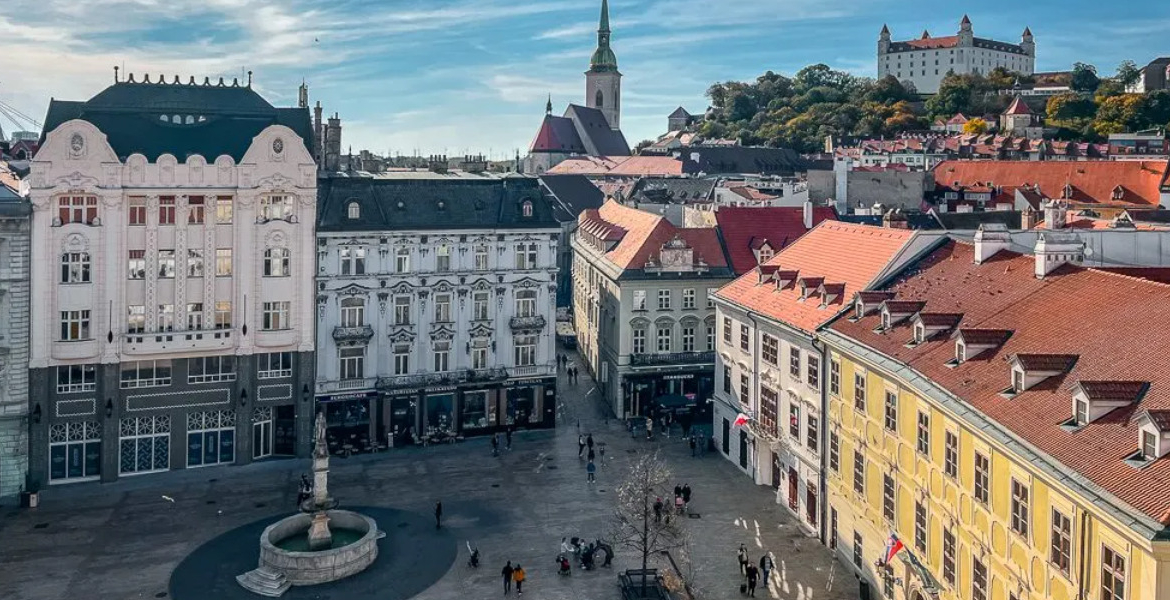Kenyan Students Find Affordable and Practical Study Opportunities in Slovakia

An increasing number of Kenyan students are choosing Slovakia as a destination for higher education, drawn by its affordable tuition, practical academic programmes, and expanding scholarship opportunities.
Among them is Bonface Kirimi, 28, who is pursuing a PhD in Economics at the University of Economics in Bratislava. He graduated with first-class honours in Actuarial Science from Kisii University before the Covid-19 pandemic disrupted his plans to work in Kenya. After several months of job hunting and an internship at the National Social Security Fund, he secured the Stipendium Hungaricum Scholarship to study International Economics at the University of Debrecen in Hungary.
Bonface arrived in Budapest in 2023, marking his first time outside Kenya. Adjusting to the European lifestyle proved challenging, from language barriers and harsh winters to unfamiliar foods. Despite this, he completed his degree with a GPA of 4.82 out of 5 and began his doctoral studies in Slovakia in September 2025.
“The cost of living is higher than in Kenya,” he says, “but once you start earning here, it becomes manageable.” He notes that social integration has been more difficult. “People are more reserved; in Kenya, we talk to strangers easily. Here, everyone keeps to themselves.”
Support from the Kenyan community and the embassy in Vienna has helped him settle, and he hopes to gain professional experience in Europe before returning home to contribute to Kenya’s economic development. Dorcas Mwendwa, 31, represents a growing number of Kenyan professionals pursuing postgraduate education in Slovakia. After several years in account management, she enrolled for a Master’s in Trade Management at the University of Economics in Bratislava.
“I wanted to grow in my career,” she says.
While her admission process was smooth, securing a visa was more difficult. Limited embassy operating hours and a complicated residence permit system led to long delays and repeated attempts to book appointments. Language barriers remained after her arrival.
“Most officers did not speak English, so I often relied on friends to translate,” she says.
Despite these difficulties, Dorcas commends Slovakia’s affordability and the hands-on nature of its courses.
“The focus is on projects and practical problem-solving, not just theory,” she explains.
Monthly living costs for students range between KSh37,000 and KSh52,000, making Slovakia a relatively economical study destination in Europe. Dorcas balances her studies with part-time work and has explored much of the country, from tourist sites in Bratislava to castles in the east. She hopes to build a career in Europe’s growing technology and trade sectors before considering a return to Kenya.
For Eric Muthomi, 29, Slovakia provided a starting point for broader academic and professional opportunities in Europe. He arrived in 2019 on a Slovak government scholarship to study Economics, joining just two other Kenyan students in the country.
“Few people spoke English, but the local Kenyan community helped us settle,” he recalls.
After completing a Slovak language course, he joined the University of Economics in Bratislava, where he adapted to the country’s practical teaching style. When the pandemic disrupted his studies, Eric took part-time jobs in a sushi restaurant and later a supermarket.
“Student jobs pay well,” he says. “If you work full-time, you can earn as much as some office workers.”
His persistence was rewarded when he received an Erasmus scholarship to finish his final semester at Martin Luther University in Germany. He describes Slovakia as one of the more affordable European destinations for students, citing hostel accommodation at about Sh18,000 per month and cafeteria meals around Sh500. Though he occasionally feels homesick, he values the chance to travel and experience life across Europe.
Dr Kipchanga Chemwotei, 47, offers a longer view of this journey. He arrived in Slovakia in 1998 on a government scholarship to study medicine at Comenius University. After completing a ten-month Slovak language course, he earned his medical degree in 2006 and specialised in internal medicine. Today, he runs a private medical practice in Bratislava.
“Language is everything here,” he says. “If you speak Slovak, opportunities open up. Without it, even finding basic work can be difficult.”
He has since built a career, a family, and a home in Slovakia, describing it as a stable and comfortable place to live, with low unemployment and accessible healthcare and education. From early pioneers like Dr Chemwotei to the new generation of students such as Bonface, Dorcas, and Eric, Slovakia has become a meaningful academic and professional gateway for Kenyans.





Add new comment